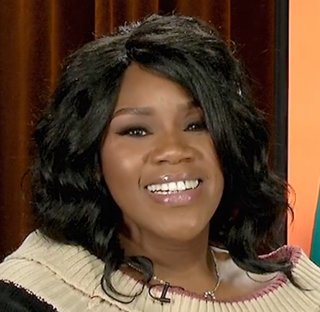A Quote by Bertrand Russell
If you question any candid person who is no longer young, he is very likely to tell you that, having tasted life in this world, he has no wish to begin again as a "new boy" in another.
Related Quotes
Individuals who break through by inventing a new paradigm are almost always either very young men or very new to the field whose paradigm they change. These are the men who, being little committed by prior practice to the traditional rules of normal science, are particularly likely to see that those rules no longer define a playable game and conceive another set that can replace them.
Part of what I am dealing with, with this blackness, is asking the question, "Where are those black people, who are as dark as the description of a young black boy that Solomon Northup gives in 12 Years A Slave?" He describes the young black 14-year-old boy as "blacker than any crow." You have to question if he is using that metaphorically or as a descriptive?
As you know, I'm a black girl out of the projects of New York City, raised in a single parent home because my parents divorced very very young... welfare and homeless at four and then again at 16 and just not having the things or the necessary tools that society would say I needed to have in order to be any kind of success in life.
Almost in the same way as earlier physicists are said to have found suddenly that they had too little mathematical understanding to be able to master physics; we may say that young people today are suddenly in the position that ordinary common sense no longer suffices to meet the strange demands life makes. Everything has become so intricate that for its mastery an exceptional degree of understanding is required. For it is not enough any longer to be able to play the game well; but the question is again and again: what sort of game is to be played now anyway?
If we apply the term revolution to what happened in North America between 1776 and 1829, it has a special meaning. Normally, the word describes the process by which man transforms himself from one kind of man, living in one kind of society, with one way of looking at the world, into another kind of man, another society, another conception of life.... The American case is different: it is not a question of the Old Man transforming himself into the New, but of the New Man becoming alive to the fact that he is new, that he has been transformed already without his having realized it.
I do want to once again speak directly to the Iranian people. Yours is a great civilization with a vibrant culture that has so much to contribute to the world - in commerce and in science and in arts. For decades, your government's threats and actions to destabilize your region have isolated Iran from much of the world, and now our governments are talking with one another. Following the nuclear deal, you, especially young Iranians, have the opportunity to begin building new ties with the world.
If you start parsing the cause-and-effect chain backward through time, eventually you land in cosmology - does the story begin with the Big Bang or the out-of-nothing creation of the world by the word of a Southern Baptist god? And that question is even more fraught than any of the others. The stakes couldn't be any higher, because not it's not just a question of life and death, but also a question of life after death or eternal torture after death.
It's only a story, you say. So it is, and the rest of life with it - creation story, love story, horror, crime, the strange story of you and I. The alphabet of my DNA shapes certain words, but the story is not told. I have to tell it myself. What is it that I have to tell myself again and again? That there is always a new beginning, a different end. I can change the story. I am the story. Begin.
Question of "Where We Begin" turns to be not only a formal question but also a question central to the attempt to make sense of things about which it is very difficult to make any sense - illness, death, despair, suicides, cruelty, the various troubles love can provoke, our inability to really know one another when we our inner selves are walled off by our bodies.


































